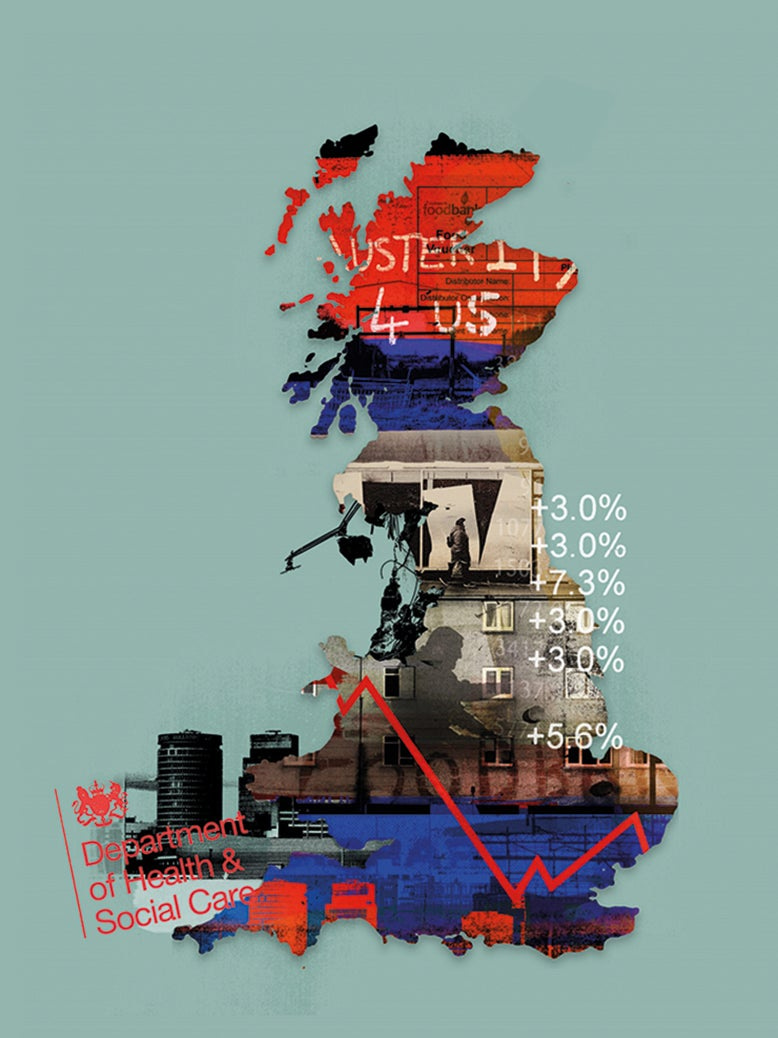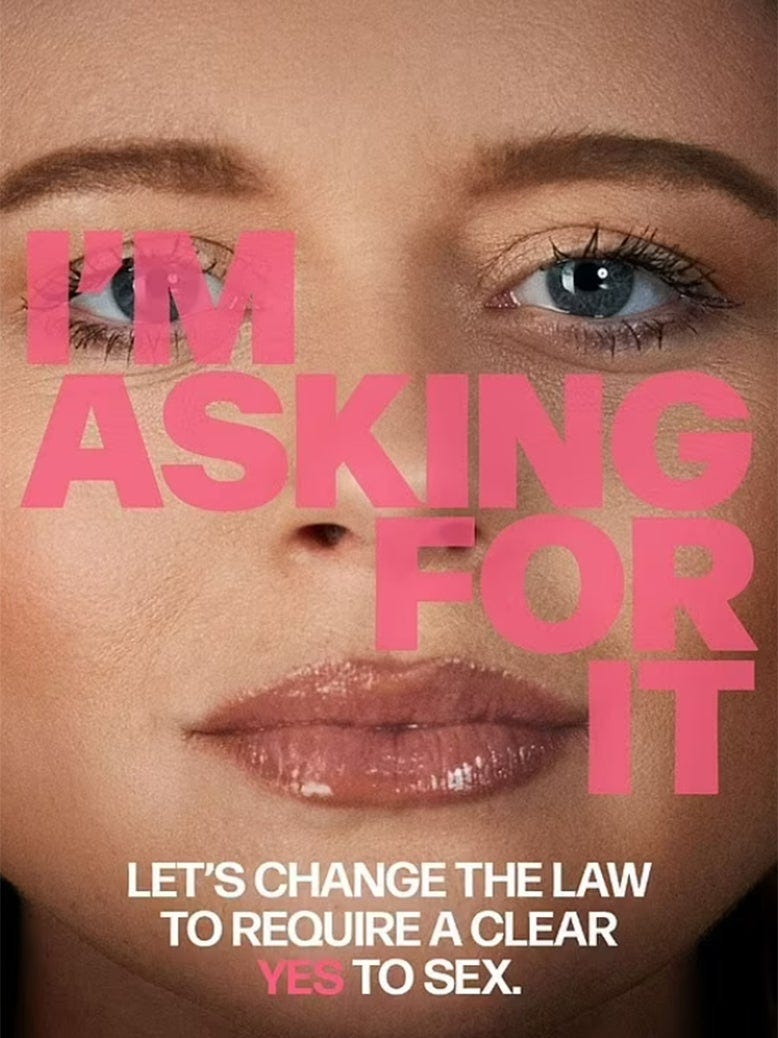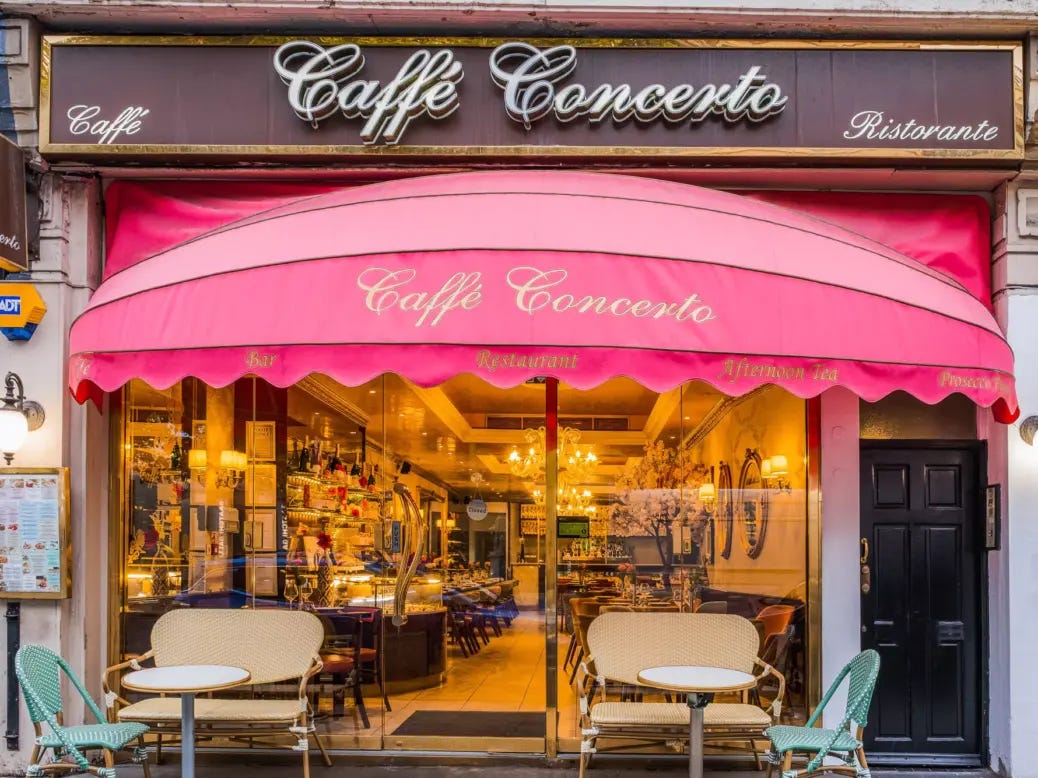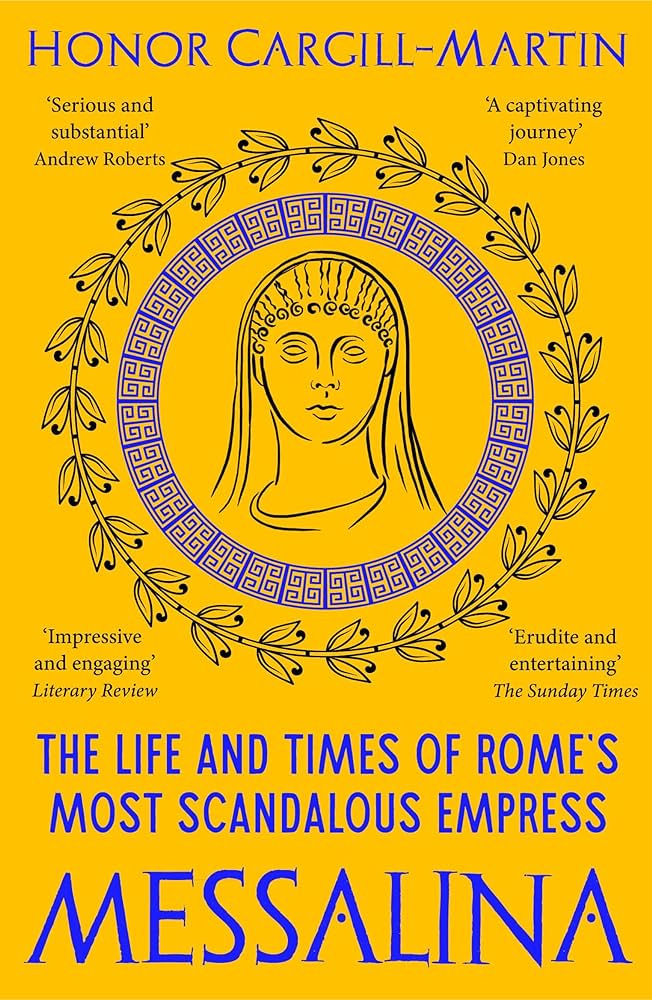The Saturday Read: Cash-strapped
Inside: Tory Britain in three stories, plus half a dozen picks.
Good morning. Welcome to the Saturday Read, the New Statesman’s weekly guide to politics, culture, books, and ideas. This is Harry, along with Pippa, Will Dunn, and George Monaghan.
This week we launched the paid tier of our daily political newsletter, Morning Call. For £3 a month you can stay up to date with everything you need to know politically by subscribing. Subscribers receive a featured piece on Sundays, so sign up if you’d like to receive the lead pick in today’s Saturday Read – Anoosh’s searing, surprising cover story on Britain after 14 years of Tory budgets – in full in-email tomorrow.
We have a raft of interesting selections for you today. I’ve then tipped a book of the week, and Will has signed us off. If you’re holding a copy of today’s FT, you may see an interview with Judith Butler. I can’t recommend this 1999 essay on her highly enough.
1—“You want to have a pride in the place… How sad it is to manage decline.”
Anoosh has written the definitive piece on perhaps the storyline of the past 14 years: the collapse of local government. Her reporting stitches together threads of fact and observation into a powerful polemic. It’s our cover story this week. HL
Since 2010, councils have had 60 per cent of their spending power cut by central government… Government ministers encouraged councils to be more entrepreneurial and raise their own funds through commercial investment, and in 2015 abolished the Audit Commission, which had kept a check on their finances. Council officers became prime targets for dubious investment propositions. At the same time, demand for the main service offered by councils – social care – has risen sharply, driven by both an ageing population and working-age sick and disabled people living longer.
This mismatch between funding for town halls and fast-rising budget pressures became known in the sector as the “jaws of doom”… “We are slightly further down the gullet than others, but others are parting the teeth I think,” said Revans, with a sad laugh. Somerset’s central government grant in 2009 was £80m – now, it’s closer to £8.4m, and two-thirds of its entire budget goes on social care.
2—“Three Bobbies fighting with the lad from across the road in your own front garden gave a whole new meaning to community policing.”
John Gray has long called it “a Maoism of the right”: the endless revolution in which every institution is destroyed and remade by the logic of the market, which is assumed to be free, rational and therefore correct. Robert Colls, who has been writing on the miners since the 1970s, says this philosophy took control of our country as the government took control of coal – “the basis of modern civilisation” – during the miners’ strike, beginning the long march to today’s outsourced, inscrutable state. WD
Why is my local NHS GP surgery owned by an American conglomerate? How come my children’s state school is privately owned? Who allowed universities to dive into global markets instead of local adult education? Who is lobbying against the Lobbying Act? Who is answerable for HS2? Who owns Thames Water?
We live in a time when our social democracy is being stretched to breaking point, and the very shape of our national life is being rendered untraceable. Government can’t do even the simplest things well.
3—“Amersi represents a return to a feudal reality where the word of the strong is gospel.”
Questioning Britain’s oligarchs is often a lot more work than it looks; behind the scenes of a simple headline are long chains of emails from frightening people who very much want to give the impression that your career hangs in the balance. The point of Tom Burgis’s latest work – which Will Lloyd writes about in this hugely enjoyable review – is that if you don’t pay for the truth, someone else will. WD
Cuckooland really takes off when Mohamed Amersi’s donations ripple out from royalty to the Conservative Party. Amersi “breezes through the party’s vetting”. He attends its 2019 Black and White Ball. There, top Tories flog themselves at auction to their wealthy donors. This surreal bidding war reads like a 21st-century version of an 18th-century Gillray cartoon: “You could go to Michael’s Gove’s home and be cooked a meal… a cheese-tasting session with Liz Truss… a box at Lord’s to watch cricket with the chancellor, Rishi Sunak… A game of tennis with Boris [Johnson]”. For fifty grand, Amersi buys dinner with Jeremy Hunt and a magic lesson taught by former illusionist’s assistant Penny Mordaunt. Government ministers are no better than the experiences flogged by Quintessentially: commodities to be bought and sold to whoever has the money to pay for them.
4—“In 2024 Biden will lose to Trump.”
Geoffrey Wheatcroft gives his view on the Democrats’ fatal tendency to select the only candidate that would lose to Donald Trump. They did it with Hillary Clinton in 2016 and look ready to do it again with Joe Biden this year (despite his surprisingly energetic State of the Union speech this week).
Wheatcroft documents the party’s complacencies over the past eight years, then warns quite chillingly that, “If Biden and the Democrats inflict a second Trump presidency on themselves and the world, they will never be forgiven.” GM
Start with the problem, or conundrum. In 2016 Joe Biden would have defeated Donald Trump. In 2020 Biden did beat Trump. In 2024 Biden will lose to Trump. Only the second of those is historical fact, but the first is widely accepted, and the last is widely apprehended. Eight years ago, the Democrats invited disaster by choosing the one candidate – Hillary Clinton – Trump could beat, and if Joe Biden insists on running again in November he will be inviting the same fate.
5—“The campaign seems like a relic from a past era of SlutWalks.”
“I’m asking for it.” That was the message emblazoned over women’s faces in a new and misguided ad campaign. Its aim is to change the legal definition of consent. But it naively co-opts a misogynistic excuse for assault, distracting from the problem of consent and the failings of our criminal justice system, writes Hannah Williams. PB
The concept of affirmative consent fails to reflect the complex, mutable and deeply personal realities of sexual conduct, where someone can enthusiastically consent without ever uttering the word “yes”, and, on the other hand, can say “yes” without truly consenting at all. If, as both the current law and the “Affirmative Consent” model acknowledge, a “yes” can be coerced – through intimidation, through deception, through myriad other ways – then what is the purpose of emphasising it as a panacea, a fail-safe that can clearly delineate assault from consensual sex? There is an onus, too, that it places on victims: did you say yes? Did you say it loud enough? If you said yes, and then you didn’t want it, but you didn’t then say no, then aren’t you, in some way, to blame?
6—“Americans are seeing just how treacherous a ‘pro-life’ nation might be.”
Alabama’s Supreme Court has declared that frozen embryos are people – or, in the court’s words, “extrauterine children”. The ramifications of that decision, which will imperil the practice of IVF in the state, make clear the absurdity of the “pro-life” movement’s claim that life starts at conception, argues Jill Filipovic. PB
What happens when the embryo – the “child”— is inside a woman’s body? Unless she is having her egg fertilised in a petri dish, most women don’t realise they’re pregnant until several weeks post fertilisation. Roughly half of fertilised eggs naturally don’t implant in the uterus and are flushed out without the woman knowing. If a fertilised egg is a person, are each of these “deaths” worthy of investigation for potential criminality? What should the penalty be for a woman housing one of these intrauterine children who, say, attends a hot yoga class or smokes a pack of cigarettes and then has a miscarriage?
7—“Shrier says therapists have ‘presided over a disaster’.”
We should be wary of pushing children into therapy, argues American journalist Abigail Shrier in a new book. Having therapy to discuss a problem you didn’t already have might be sufficient to induce it, writes Hannah Barnes in her review of it. Shrier is persuasive, Hannah thinks, but the author’s disdain for self-help gurus is ironic: Bad Therapy is itself another parenting manual. PB
The accounts of what is taking place in America’s schools, where most have a “full team” dedicated to mental health, and children take part in daily “emotion check-ins”, are frightening. “What is something that is making you really sad right now?” a teacher asks a group of ten- and 11-year-olds. “I think that my dad hates me. And he yells at me all the time,” one boy replies, as he bursts into tears. “Within minutes,” a mum of one in the class tells Shrier, “half of the kids were sobbing.” It’s difficult to see how these children are helped by the activity. Then there are the questions asked in school surveys, the contents of which have been extracted by parents through Freedom of Information requests. Eleven-year-olds in Florida are asked: “Have you ever seriously thought about killing yourself?”
8—“Caffè Concerto has no unifying aesthetic beyond kitsch.”
The latest object of Josiah Gogarty’s curiosity, after drill music and LinkedIn, is Caffè Concerto. He completes an odyssey across the chain’s heartland: the stretch from Green Park to Shaftesbury Avenue in London, which crams five of them into 600 metres. Like the Karl Ove Knausgaard of pastry, Concerto “takes naffness to a paradoxical place of deep authenticity”. You may never have noticed one before, but you will now, and when you do you will know to order the Saffron Spanish Latte. GM
Its vibe of Britishness diluted into pan-European mush is probably how most people think of London; visitors to the city’s vibeless core far outnumber residents across its postcodes. The Covent Garden branch, where my odyssey ended, was a shiny monument to revealed preference: people say they want something unique and different, but mostly, they deeply desire the narcotic embrace of bland, globalised non-places. In this bright white room, I ate a caprese salad scattered with pomegranate seeds. On the speakers, a bossa nova cover of “I Love Rock ’n’ Roll” slid into a smooth jazz cover of “Don’t You Want Me”. I could have been anywhere, but around me were at least a dozen people who had flown across the world to come here.
9—“In some ways a ubiquitous drug culture is the perfect embodiment of hyper-capitalism.”
John Gray argues that Western liberal democracies are both powerless against and responsible for their drug epidemics. Anomic individualism has floored the accelerator and anti-authoritarianism has cut the brake wires. If not very encouraging it is at least very interesting – especially the story of the autonomous narco-Belgium operating in the mountainous China-Myanmar borderlands. GM
In the US, the Oregon legislature has approved a bill reversing drug decriminalisation. American cities where it has been tried, such as San Francisco, have become zones of dereliction and death, abandoned by businesses and the affluent liberals who promoted the policy. A similar experiment in Portugal has worked better, though global traffickers continue to use the country as a portal into Europe. As yet there is no first-world counterpart to the UWSA, but some Dutch politicians fear that the Netherlands, a major transit point for drug smuggling, is on the way to becoming a narco-state. A more radical policy of full legalisation in which the state produces and distributes regulated products works only if governments can stem the flood of underground designer drugs, which is impossible without resorting to authoritarian methods.
George’s Best of the Rest
Al Jazeera: France becomes first country to make abortion a constitutional right.
Martin Wolf: Britain needs more than fiscal games.
David Smith: Trump’s vision of American apocalypse.
Alexandra Alter: Gabriel García Márquez’s last novel, which he wanted destroyed, out soon. Zero more years of solitude for this draft.
Layla Halabian: Everyone you know will be reading Worry this spring.
David Brooks: Surviving the ugliness of it all.
BJ Hollars: Coco Gauff and David Foster Wallace.
Jane Austen fans vs Jane Austen statue. Not very sensible.
Oldest person turns 117. Eyes presidential bid.
Scientists throw singles party for giant marine snails. But they want to take things slowly.
Woman takes travel-loving hamster on posthumous tour of Europe.
Elsewhere on the NS
The Home Office tried to sneak out its latest report unnoticed, but Hannah Barnes was on their case.
Steve Reed explains how Labour can become the party of the countryside and describes himself as a “social conservative” in an interview with Freddie.
Michael Sheen gets into a fight with Kemi Badenoch in this week’s Diary.
Ahead of the Oscars tomorrow, Pippa watched (almost) every film Emma Stone has ever made in an attempt to make sense of her wildly varied career.
Helen Macdonald writes on how returning wolves and wild boar to the UK would enrich our lives as well as our habitats.
Zuzanna Lachendro looks at how a dance troupe has turned eccentricity into an art form.
Aidan Monks examines the work of musician Robbie Robertson, who died two months before his 12th collaboration with Martin Scorsese, Killers of the Flower Moon, reached cinemas. “They may not remember the names of the songs, but Robertson’s melodies endure.”
What film are we living in now? Children of Men, submits George Walker.
Book of the week: Messalina: The Life and Times of Rome’s Most Scandalous Empress (2023)
What should you read to understand the first century of the Roman Empire? Gibbon starts in the Antonine age and Robert Harris’ Cicero books end with the fall of the Republic. You could read I, Claudius. I did as a teenager. I can’t say I remember a great deal about it. But I did recently read this new book by the classicist Honor Cargill-Martin on Claudius’ wife, Messalina, possibly the most damned woman in history.
Messalina, who in effect briefly ruled Rome while supposedly sleeping with much of the city, has been derided for millennia as Rome’s “whore-empress”, whose terrifying caprice exemplified all that was wrong with handing women power.
She won it in Claudius’ name at a time when it was draining away from an all-male Senate, becoming “an obscure and slippery thing that occurred behind closed doors, defined by personal rivalries and internal factionalism, played out through suspected poisonings and false accusations”. She has come to serve as “a monstrous personification of the intersection between male fantasy and male fear”.
Cargill-Martin thinks that fear has masked a deeper truth. The real Messalina was a girl of 18 tasked with surviving as the wife of an emperor – an emperor installed only after the slaughter of his predecessor, Caligula. Messalina’s actions need to be cast in light of that daunting fate. Messalina rescues a woman dismissed as a “vacuous slut” from the condescension of history and the glare of the male gaze.
And with that…
The strangest thing about living in the middle of London is the noise. There is none. Sometimes there is less than none. If you write for a living you get used to awful stillnesses – you crave them most of the time, and are grimly cognisant of sacrificing friends, partners and money at this altar – but still, the weirdest thing about renting out a shoebox halfway between King’s Cross station and Russell Square is the perfect nightly silence. Everything shuts early. After midnight, the city is as talkative as a corpse.
I am being dramatic. There’s an O’Neill’s at the end of my road that is open until 2am. But do I want to get drunk in an O’Neill’s? (Snobbery has to start somewhere, I’m afraid.) There are nearby hotel bars that never really close, where the cocktails are mostly water, unhappy composite liquids that share glasses with skull-sized ice cubes. Twenty pounds for an ice cube? It’s not a great deal… You have fallen very far indeed when you find yourself at the Genting casino on Shaftesbury Avenue at 3.30am, staring into a double whisky while shoals of mute Chinese gamblers float around you.
I suppose you could pay to join the members’ club Soho House. But then you would meet what passes for the membership most nights: accountants, solicitors, consultants. Who among them will listen to me explain why Lytton Strachey was a better essayist than Noel Annan? In Soho it’s easier to get drunk after dark in a restaurant (try Speedboat’s beer towers) than in a pub.
This morgue is what Sadiq Khan calls a “24-hour city”. According to the mayor, “other global cities look to us for inspiration”. They might include Sydney, Bologna and Madrid – cities where his £116,925-per-year “night tsar”, Amy Lamé, made privately funded trips between 2022 and 2023. (I have read the job description for the “night tsar” several times now. It makes less sense with each reading.)
If today’s pieces intrigued, you can subscribe to the New Statesman below. Stay up to date with everything from news and analysis to comment, criticism and essays.
Whether you’re looking for a sharp blog or a finely written feature, the New Statesman has you covered. Have a good week, and catch you next Saturday.























I found Past Lives (having watched it twice) far more compelling and ideally my choice for the Oscar but the whole basis of "best film" is clearly shaky and too much commercial simplification. American fiction would have been on my shortlist with Zone of Interest.